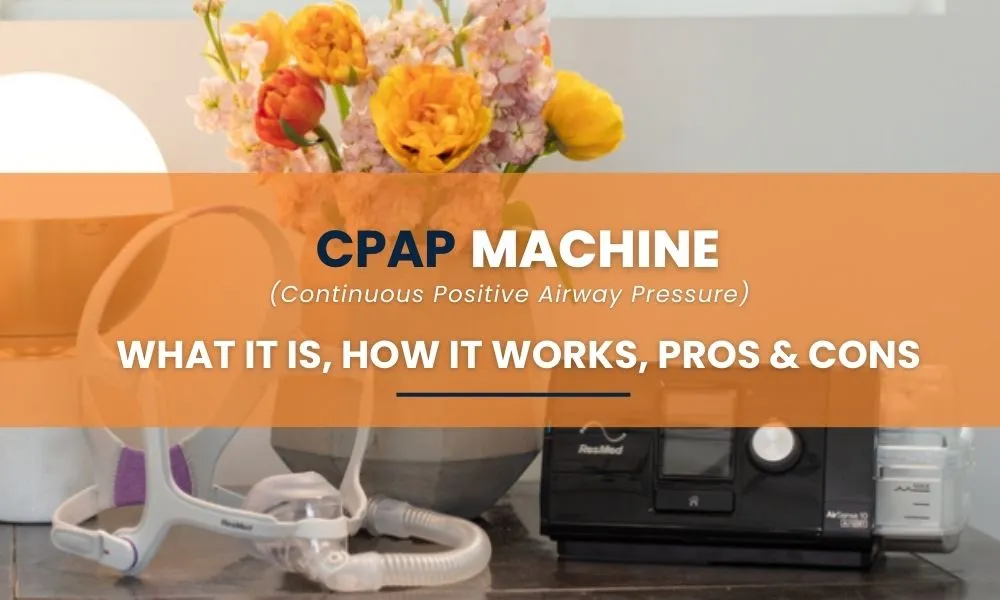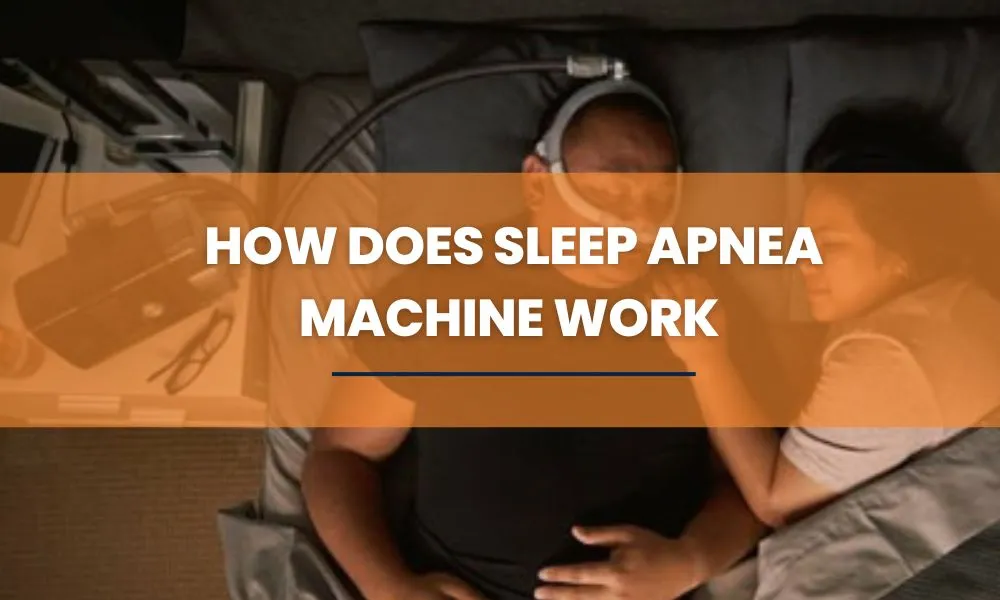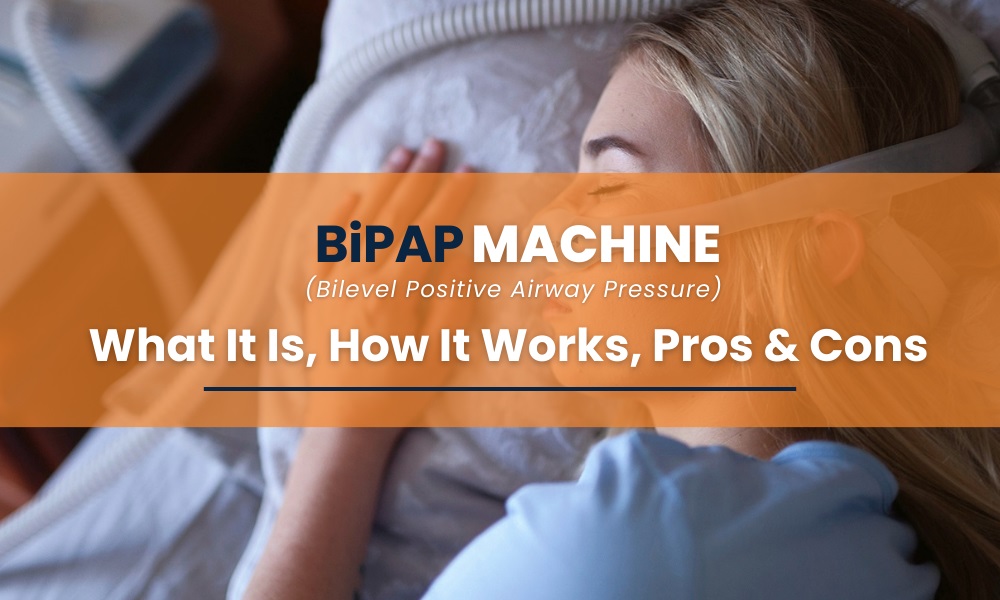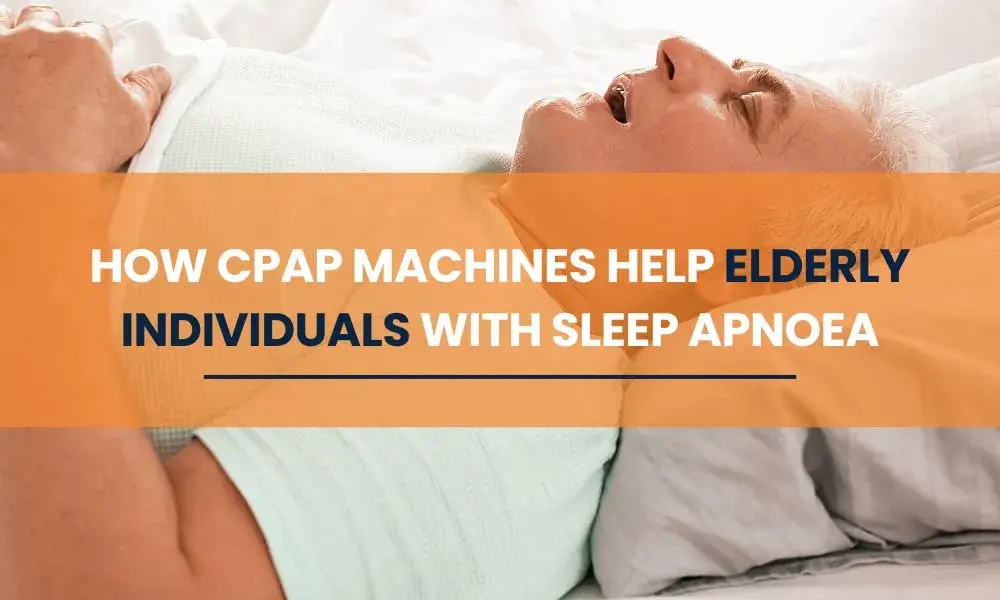
Sleep is essential for maintaining our well-being, yet many face challenges in achieving a restful night’s sleep. One such hurdle can be conditions like sleep apnea, where breathing can frequently stop and start during the night, causing restless sleep and health complications. To combat such issues, Continuous Positive Airway Pressure machines, commonly known as CPAP machines, are an increasingly used solution.
In essence, a CPAP machine is a device designed to help individuals breathe more easily during sleep. It does so by increasing air pressure in your throat, ensuring your airway doesn’t collapse when you breathe in. Despite the technicalities, it’s straightforward to use, making it a popular choice for those with sleep disorders.
Now, if you’re considering a CPAP machine, it’s essential to understand its inner workings, benefits, and potential drawbacks. These aspects shall be our focus now. We aim to provide a comprehensive overview of CPAP machines, elucidating their function, advantages, and disadvantages. This will enable you to make an informed decision about whether a CPAP machine is the right choice for you.
Understanding CPAP
CPAP is a type of therapy often used for treating obstructive sleep apnea (OSA). The term “continuous” refers to the constant, steady air pressure delivered to a patient’s upper airway to keep airways open, helping users breathe smoothly at night.
Before we delve deeper into the mechanics of CPAP, let’s first discuss OSA – a condition where this therapy is most commonly applied.
Obstructive Sleep Apnea is a common sleep disorder which manifests as an intermittent cessation or noticeable reduction in airflow during sleep. This condition is typically characterised by loud snoring, restless sleep, and daytime tiredness. The reason for these disruptions stems from a blockage of the airway, often when the muscles in the back of the throat fail to keep the airway open.
This is precisely where CPAP therapy comes in handy. CPAP machines are designed to produce a constant stream of pressurised air, which then passes through a tube into a mask that fits over your nose, or nose and mouth. This stream of air helps to keep your upper airway passages open, preventing apnea (pauses in breathing) and snoring.
CPAP plays a crucial role in treating sleep disorders. By ensuring continuous airflow, these machines help to stabilise the breathing pattern, offer some relief from the symptoms of sleep apnea, and thus can result in a better quality of sleep. This continuous flow of air offers a simple yet effective solution, providing users with uninterrupted sleep and drastically improving daytime functionality.
How CPAP Machines Work
To truly understand the benefits and operations of CPAP machines, let’s explore the basic components and their role in therapy.
A CPAP machine is composed of three primary elements:
- Airflow generator: This is the heart of the CPAP machine, producing the streams of pressurised air that keep your airway open while you sleep. It’s often compact and quiet for user convenience.
- Mask: The mask is worn over the nose, or nose and mouth, while you sleep. It comes in different types and sizes to cater for individual comfort and fit.
- Tubing: The pressurised air produced by the airflow generator is delivered to the user’s airway through a flexible hose or tube, which connects the generator to the mask.
The beauty of the CPAP machine lies in its mechanism of delivering continuous positive airway pressure. The machine generates a specific air pressure – one that’s just enough to keep your upper airway passages open. This helps to prevent sleep apnea and snoring, thereby enabling a more comfortable, undisturbed sleep.
The objective here is to keep what’s termed “airway patency” during your slumber. In simple terms, whenever you snooze, your throat muscles (which help keep your airway rigid and open) also relax. For some, the muscles relax so much that the airway becomes too narrow for enough air to travel to the lungs. The inability to maintain that patency is what leads to sleep disorders like sleep apnea and heavy snoring. With CPAP, the constant positive pressure helps keep these airways open, sidestepping this issue entirely.
However, it’s crucial to understand that the success of CPAP therapy is heavily reliant on bespoke pressure settings. Given the unique requirements of each patient, the pressure should ideally be adjusted to individual needs, as determined by a sleep study or professional consultation. A personalised attention to these settings can greatly enhance the effectiveness and comfort of CPAP therapy, improving patients’ sleep quality and overall health.
Advantages of Using a CPAP Machine
CPAP therapy is widely acknowledged for its effectiveness and multiple advantages. As a non-invasive and relatively safe form of therapy, it enables users to address sleep disorders without the need for medication or surgery.
Here are some of the primary benefits of using a CPAP machine:
1. Effective treatment for sleep apnea
A CPAP machine has been proven to be one of the most effective non-surgical treatments for OSA. The machine helps keep the airway open throughout the night, eliminating the breathing pauses associated with sleep apnea, offering a good night’s sleep.
2. Improved quality of sleep and daytime alertness
Since the primary purpose of a CPAP machine is to facilitate uninterrupted sleep, users often report improved quality of sleep. This can significantly reduce daytime sleepiness, boost job performance, help with mood regulation, and overall increase the quality of life.
3. Reduction of health risks associated with untreated OSA
When left untreated, sleep apnea has been known to contribute to several health issues, including heart disease, stroke, high blood pressure, and diabetes. Research has shown that regular use of a CPAP machine can reduce these risks, providing you not just better sleep, but also better health.
4. Non-invasive and relatively safe therapy
Unlike other treatments for OSA, which may involve medication or invasive surgery, CPAP therapy is much less risky. It simply involves wearing a mask hooked up to a machine that gently blows air into your airway to keep it open.
The advantages of CPAP therapy make it a frontline treatment against sleep disorders. As you venture into your healthier sleep journey, remember that the right treatment can not only enhance the quality of your sleep but also improve the quality of your life.
Potential Drawbacks and Limitations
Like any treatment, using a CPAP machine comes with a few limitations and potential drawbacks. It’s important to keep these in mind, so you understand both the positive and less desirable aspects of the treatment.
1. Discomfort and adjustment period
Some users may find the experience of using a CPAP machine uncomfortable, especially in the beginning. This discomfort can stem from the continued positive pressure, wearing a mask overnight, or the challenge of sleeping in specific positions. However, it’s worth nothing that most people often get used to these sensations with continued use.
2. Mask-related issues
Finding a mask that fits right can be a task. An ill-fitting mask might lead to leaks, causing ineffective therapy, and can cause pressure sores or discomfort. Therefore, it’s vital that your mask fits properly and comfortably. There is a range of masks available, and a sleep specialist can help you find the right fit.
3. Noise and sound levels
While modern CPAP machines are designed to be quiet, some may still emit a low-level sound that can disturb either the user or their partner. Though the noise level is generally low and steady, it can take some getting used to, especially for light sleepers.
4. Travel and portability considerations
Considering travel and portability, traditional CPAP machines can be bulky, making it a challenge to carry around. On the bright side, many manufacturers now produce smaller, travel-friendly models to make it easier for users on the move.
By being aware of these potential challenges with CPAP use, you’ll be better equipped to work with your healthcare provider and sleep consultant to make your experience as comfortable and effective as possible. After all, every hurdle can lead to a solution – in this case, more comfortable and restful sleep.
Customization and Accessories
A CPAP machine is a not a one-size-fits-all solution. Achieving the most effective and comfortable sleep therapy often means customising the device and introducing accessories best suited for individual needs. Let’s dive into the options that allow you to make the treatment yours:
Types of CPAP Masks
There is a variety of CPAP masks available for different comfort and therapy requirements:
- Nasal masks: These cover only your nose and are typically used by people who breathe through their nose during sleep. They are comfortable and offer a great range of vision, allowing you to read or watch TV before bed.
- Full face masks: Designed to cover both the nose and mouth, these are suitable for people who tend to breathe through their mouth or have frequent bouts of nasal congestion.
- Nasal pillows: These are lightweight and minimal, fitting directly into the nostrils. They are popular among people who feel claustrophobic with a larger mask or who have facial hair that interferes with mask seals.
It’s crucial to try different types of masks under the guidance of a sleep specialist to determine which one provides the most comfort and effective seal for your therapy.
Humidifiers and Heated Tubing
For added comfort, CPAP machines often come with an optional humidifier and heated tubing. Dry and cold air can lead to dry, sore, or congested airways. A humidifier adds moisture to the air delivered by your CPAP machine, and heated tubing keeps the air warm, reducing condensation in the tube. Both these accessories can make your therapy more comfortable and easier to tolerate.
Choosing the Right Mask and Accessories
Choosing the right mask and accessories is an integral part of achieving successful CPAP therapy. Considering your personal needs, lifestyle, comfort, and fit should be the priority. Visiting a sleep specialist or CPAP provider can offer you professional insight into ideal mask selection and other required accessories.
By thoughtfully choosing and customising your CPAP machine and accessories, you can significantly enhance the effectiveness and comfort of your therapy, making for a more relaxed and rejuvenating sleep.
Choosing the Right CPAP Machine
Choosing the right Continuous Positive Airway Pressure (CPAP) machine can be a game-changer for those dealing with sleep apnea. However, the vast range of options available can turn decision-making into an overwhelming task. Therefore, weighing in on several factors under professional consulting can guide you towards the most suitable machine for your individual needs.
Factors to Consider when Selecting a CPAP Machine
When it comes to CPAP machines, one size doesn’t fit all. Here’s what to consider when you’re selecting a machine:
- Prescription: Your prescription determines the extent of pressure you need. Devices such as standard, bi-level, or automatic (APAP) are designed to provide different levels of pressure. Hence, understanding your prescription is pivotal in deciding the type of machine.
- Machine type: As mentioned above, you can choose from standard CPAP, APAP (which automatically adjusts pressure throughout the night), and BiPAP (which offers more significant air pressure differences when you breathe in or out). Your choice depends on your specific sleep needs.
- Additional features: Some CPAP machines come with the unique features like built-in humidifiers, heated tubing, and flexible pressure settings that can boost your comfort.
Consulting with a Sleep Specialist or Healthcare Provider
Before making any purchase decisions, consult with a sleep specialist or healthcare provider. Their first-hand access to your sleep study results, cognizance of your medical history, and expertise make them the best source of advice. They can help interpret your needs and guide you in choosing the most effective CPAP machine for you.
Finding the Most Suitable CPAP Machine for Individual Needs
Your comfort is paramount for successful and regular CPAP therapy. A machine that fits your sleep habits, lifestyle (like if you travel frequently), and personal preferences (for noise levels, for instance) is the one you’re most likely to use consistently.
Remember, the ‘best’ machine is not just the one with the most features or the highest price tag—it’s the one that allows you consistent, comfortable sleep. Therefore, do not rush this process. Take the time to do your research, try out different models, and make an informed decision with the help of your healthcare provider. The result will be the most refreshing sleep you’ve had in a long time.
Take Control of Your Sleep with Rockingham CPAP!
Sleep apnea doesn’t have to rob you of a refreshing night’s sleep – not when you’ve got Rockingham CPAP on your side. With a diverse range of top-tier CPAP machines and a commitment to personalised service, we’re here to ensure your remedy for sleep apnea fits you like a glove.
Don’t let another night go by without the restful sleep you deserve. Start your journey to better sleep by choosing us, Rockingham CPAP. With out guided selection process, we tailor-fit the sleep solution just for you.
Say goodbye to disrupted sleep and hello to days filled with energy and vitality. Contact us today to get started!






